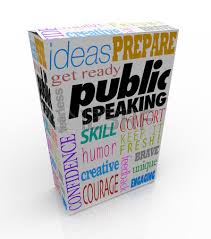Debating and Public Speaking
The College provides opportunities for students to learn debating and public speaking with a Junior Debating and Senior Debating program. Students participate in inter-school debating competitions and meet each week to plan for their topics and prepare their arguments.
The Debating program aims to give young speakers the opportunity to put their ideas forward in front of an audience whilst expanding their knowledge of current affairs. Students will develop the “building blocks” of public presentation—confidence, clarity, and the development of arguments—which are very important skills both in and out of school.
 Debating is an invaluable skill for students:
Debating is an invaluable skill for students:
- it promotes confidence and effective public presentation
- it encourages logical and critical thinking, social awareness and an interest in current affairs
- it is multi-disciplinary: debating techniques can be used in all subject areas
- its benefits extend through all aspects of the school curriculum
- it is well directed to the “Communication” and “Thinking” domains of the Victorian Curriculum. More specifically, it addresses the “Speaking and Listening”, “Listening, Viewing and Responding”, “Presenting”, “Reasoning, Process and Inquiry” dimensions of the Curriculum and VCE English.
Public Speaking helps students to have:
1. More confidence
If the ‘old you’ suffered from doubt and anxiety, you’ll find it gradually replaced by a new self image. In this one you’ll see yourself standing tall, talking easily and communicating well. You will feel empowered.
2. The ability to easily assume leadership in a group, or to readily talk for yourself.
If you let others do your talking for you in the past or found it hard to express what you wanted to say, that will fade. Not only will you be able to fluently speak your mind but you’ll find yourself doing it for others too.
3. Become more definite
In other words, you’ll no longer let things go saying “they don’t matter” when what you really mean is you lack the confidence to state your case clearly.
4. Developed your listening, reading and writing skills
Preparing effective speeches involves considering your audience which means listening carefully and sensitively to what they’re saying. You’ll also hone your reading through research, and your writing through wanting to communicate effectively.
5. Learned a lot of performance skills in order to make your speech more effective
You’ll have become conscious of timing – when to pause and how long for. You’ll know about vocal variety – how to shift through changes of volume, speech rate and tone. Your articulation will be clearer. As you become more confident you’ll know about mime, using props and story telling. All of these skills enhance your speech.
6. Experienced the joy of breaking down cultural and social barriers through knowing what to say and how to say it.
7. The pleasure of sharing, motivating, inspiring or helping people to help themselves.
You’ve become a change agent -a powerful conduit for spreading hope.
8. Developed your vocabulary and general speech fluency
You’ll know the effect of the words you choose to express your message and you’ll also know they need to be different for different audiences to hear or receive them the way you want them to. As well as having a flexible vocabulary, you’ll no longer “um” and “ah” or use any of the fillers we commonly hear in everyday conversation indicating that the speaker may be unsure about what they’re saying or anxious about saying anything at all.
9. Become more conscious of your personal potential
Minus public speaking fear you will aim higher whereas before you may have settled for much less.
10. Become more conscious or responsible for the effect you have on others
You will know your words are powerful and you will be more careful about what you say and how you say it.
11. No fear of impromptu or spontaneous speaking challenges
When called upon to say a few words at a moment’s notice your heart will not pound. Instead you’ll find yourself graciously accepting the opportunity given and speaking fluently.
12. Increased your social network considerably
Putting yourself forward makes it easier for you to meet others. You’ll find people want to talk to you – your spirit of “can-do” is attractive, energizing. You will draw people to you.
13. Become a role model for younger people
14. Increased or opened up opportunities for career advancement
People who can communicate well are always wanted in any profession.
Students who are interested in joining a debating team should see their English teacher.

